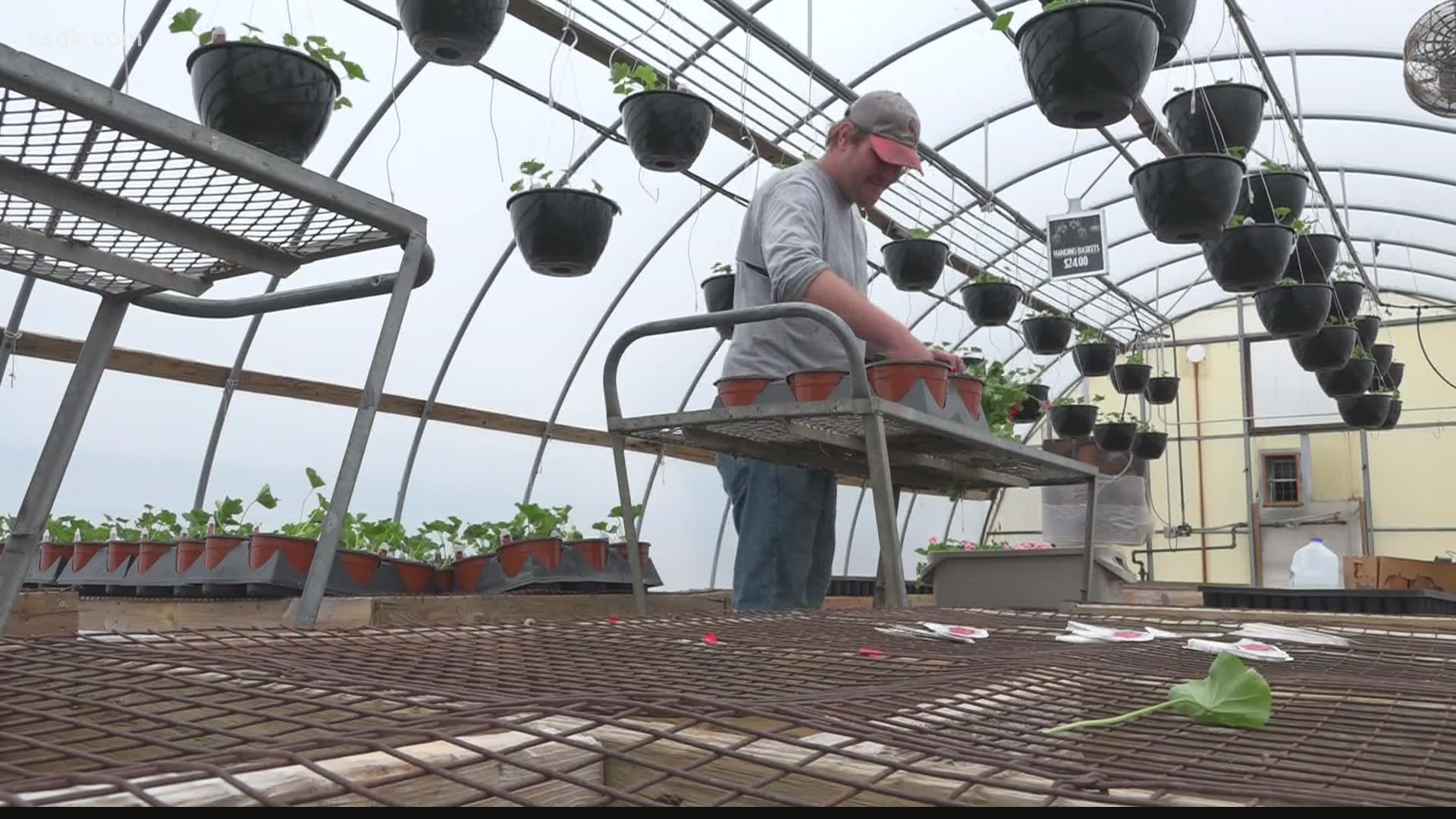ST. LOUIS COUNTY, Mo. — Even amid February showers, they're thinking about spring flowers—and fruits and vegetables—at Thies Farm in north St. Louis County.
“If it's cool outside, in the greenhouses, we love it,” said Dave Thies.
The original plot off Hanley Road has been in his family since the 1800s; he’s the fifth generation to farm it. This year, growing the crops and plants means digging deeper—into his pockets.
“We're probably looking at anywhere from 10 to 20 percent of our input costs being higher,” he said. “I think in general, everybody is going to have to get prices up still a little bit in order to be sustainable.”
Even at a local farm, everything from the energy to regulate the greenhouses to the plastic containers for the plants comes from somewhere else—and amid record-setting inflation around the country, that means it’s all getting more expensive.
“Everything we touch has increased in price, from a seed that we will put in the ground to the herbicides that we will use to control weeds,” said Garrett Hawkins, president of the Missouri Farm Bureau. “In some cases, farmers are paying nearly 300 percent more for fertilizer going into this spring growing season. That is a huge shock to your pocketbook.”
Labor is harder to find and more expensive to get, eating into more of a farmer’s budget. Supply chain hang-ups are causing delays and price increases as well. Even the ongoing computer chip shortage that is making it difficult to buy new cars right now is also impacting farm equipment. Hawkins said that means prices will inevitably be passed to the shopper.
“I want to remind my fellow consumers that when you pay more for meat at the meat counter or when you're paying more for that frozen vegetable in the freezer, just know that that doesn't necessarily mean that higher prices go to the pocketbooks of farmers and ranchers because that's not the case,” he said. “We're going to continue to do what we do really well this spring as we go into planting season. But we are asking for a little grace and understanding as we all pay more.”
At his family’s namesake farm, Dave Thies says he’s thankful the winter storm last week hit early enough in the season to keep their planting schedule mostly on track—though he is having to adjust some of his typical to-do lists to account for supply delays. But he says he remains optimistic they’ll deal with this season, as they have for so many challenging times before.
“You learn to deal with it,” he said.

